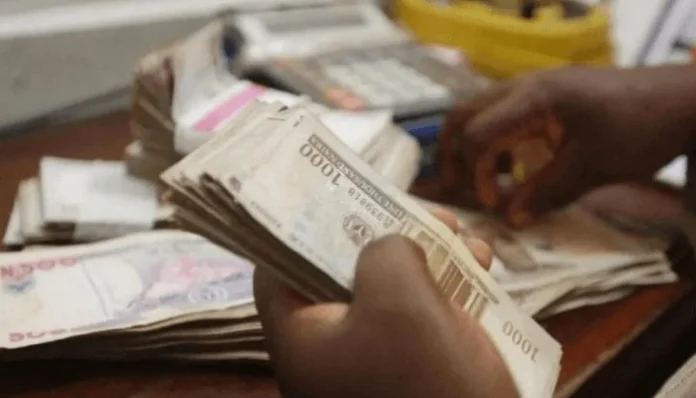Following the growth in proceeds from the Federation Account Allocation Committee (FAAC) to the three tiers of government, money supply or M2 surged to an unprecedented N64.36 trillion last month, marking a significant 31.62 per cent year-on-year (YoY) increase from its previous value of N48.9 trillion in June 2022.
Analysis of numbers released by the Central Bank of Nigeria (CBN) revealed that M2 has gained 21.81per cent Year-till-Date (YtD) from when the CBN announced N52.84 trillion in January 2023.
From the beginning of 2023, the money supply, encompassing quasi-money, currency outside banks, and demand deposits, has maintained a consistent upward trend.
A breakdown of the Money and Credit Statistics data from the CBN published on its website showed that the money supply from the quasi-money assets that are highly liquid and can easily be converted to cash went up by 24.87 per cent YtD to N39.86 trillion in June 2023 compared to N31.92 trillion in January this year.
While currency outside banks increased significantly by 185.67 per cent YtD from N792.18 billion in January 2023 to N2.26 trillion in June 2023.
Further analysis of the CBN data showed that a substantial amount of naira notes, totalling N2.73 trillion, is being hoarded by the public outside the commercial banks’ vaults, indicating a persistent trend.
Additionally, demand deposits, which are funds held in bank accounts that can be withdrawn on demand without prior notice, saw a remarkable 11 per cent Year-to-Date (YtD) increase, reaching N22.23 trillion in June 2023 compared to N20.12 trillion in January.
Analysts believe the federal government spending has contributed to increasing M2 in the economy.
The Federation Account Allocation Committee (FAAC) in May disbursed the sum of N786.161 billion as Federation Account revenue to FG, States, Local governments (LGs) and in June 2023, FAAC shared N907billion
The money shared in May 2023, is an increase of N130.230 billion over the N655.93 billion shared in the April 2023.
The N907 billion disbursed is the second highest since January when a sum of N1.14 trillion was shared.
The Money and Credit Statistics of the CBN also disclosed that currency in circulation stood at N2.6 trillion in June 2023, a 87.77 per cent increase from N1.39 trillion in January.
Despite the slow growth in Nigeria’s economy, the CBN disclosed that credit to the private sector increased to N52.81 trilllion as of June 2023 from N41.54 trillion in January 2023.
The credit to the private sector gained 3.7 per cent or N1.5 trillion in first quarter (Q1) of 2023 as compared to 3.65 per cent or N1.28 trillion gained in Q1 2022.
Checks revealed that the reported N52.81trillion credit to private sector is all-time high and the figure is expected to increase further this year.
Nigeria’s economy in the first quarter of 2023 witnessed political tensions, scarcity of naira and fuel shortages that slowdown business activities.
As a result of slow economic activities in Q1 2023, business conditions in the country deteriorated at the sharpest pace, while price pressures climbed further in March 2023 and at the same time, borrowing costs were increased to a new record high.
Credit growth slowed slightly in January and February 2023, from the fourth quarter of 2022 and foreign direct investment plunged in 2022, hampered by the US dollar shortage, leading some companies to cancel their expansion plans.
The economy however rebound in second quarter, following a peaceful 2023 presidential elections.
Amid these challenges, credit to private sector has gained 27.13 per cent or N11.27 trillion YtD from N41.54 trillion to N52.8 trillion as of June 2023.













